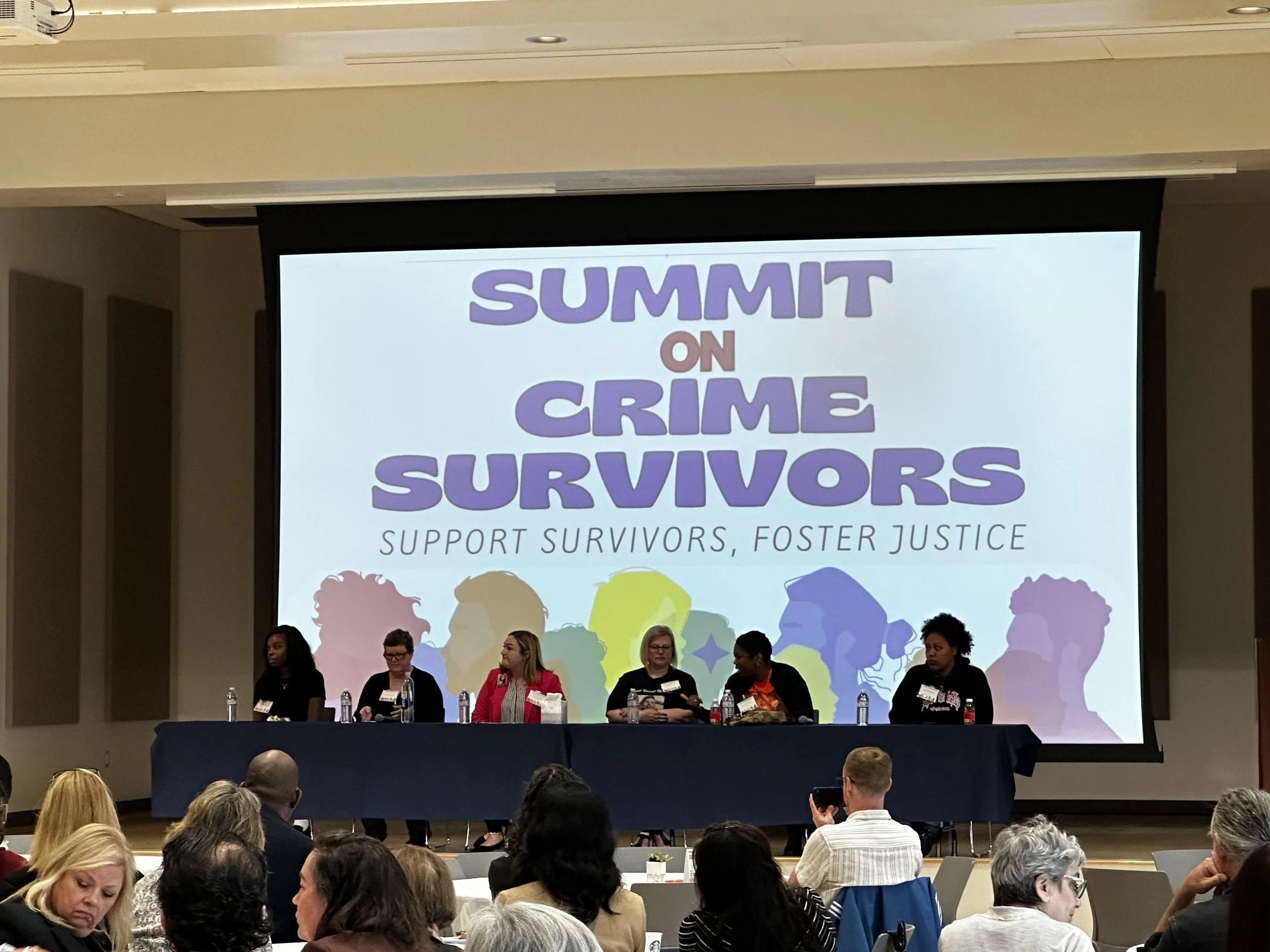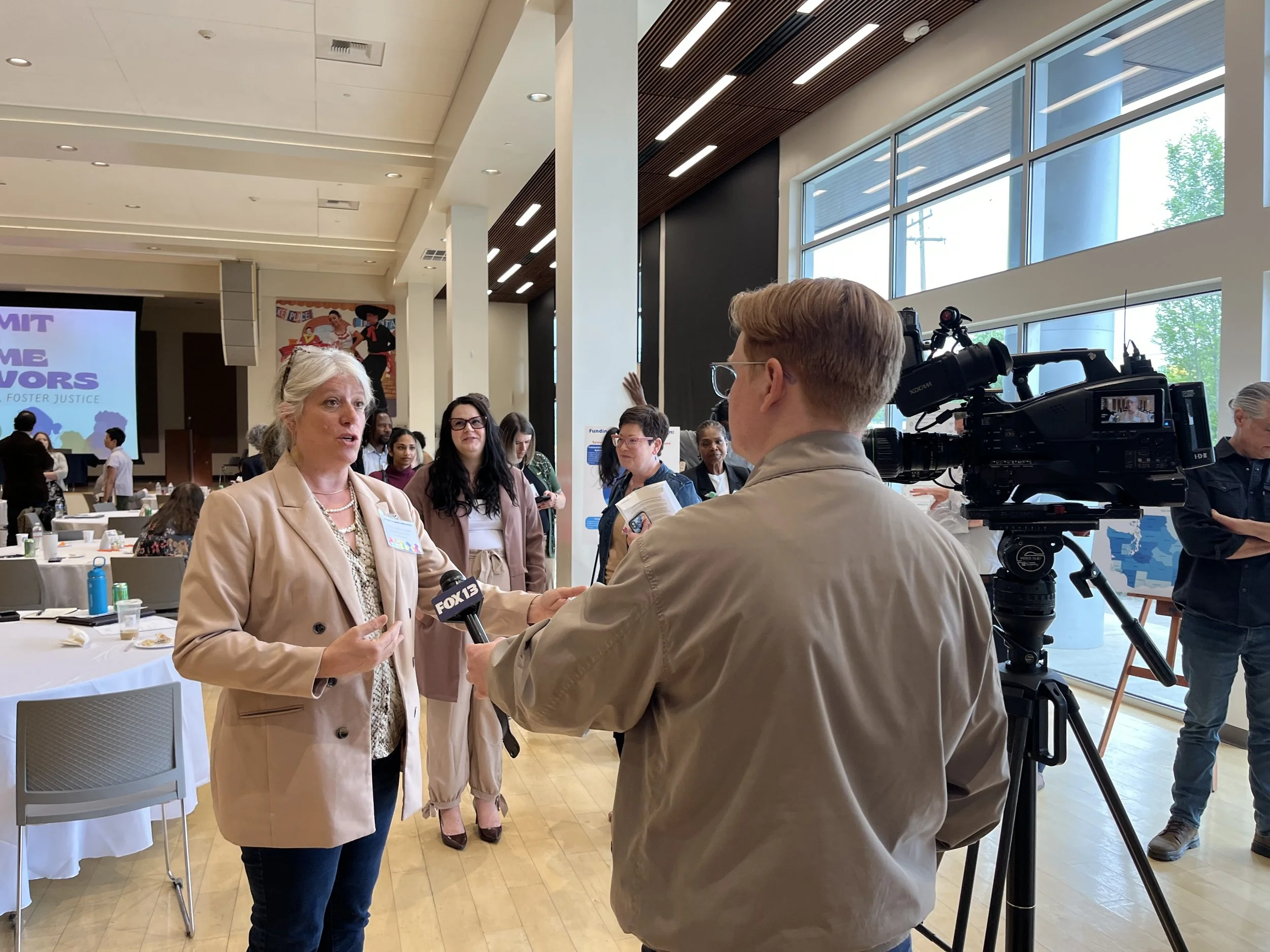King County Executive Candidates Pledge to Prioritize Survivors of Violent Crime as Support Services Dwindle
VIDEO: Back2Besa covered King County’s very first Summit on Crime Survivors earlier this year. (Back2Besa / FOX13 Seattle / Converge Media)
By Elizah Lourdes Rendorio
King County’s first-ever Summit on Crime Survivors ignited calls upon public officials to commit to keeping survivors of violent crime at the center of policy decisions. Held in June at the Sea Mar Museum of Chicano/a/Latino/a Culture, the summit brought together survivors, families of victims, victim advocates, and public officials to discuss the gap of support service for survivors navigating the justice system.
“We're at a unique opportunity right now to ask for and get a commitment from our folks who are running for office,” Tiffany Attrill, former victim advocate and founder of the Victim Justice Coalition, said. “It's an opportunity for the King County Executive position to do something different – to do more for crime victims and survivors.”
Panelist speak at the Summit on Crime Survivors at the Sea Mar Museum of Chicano/a/Latino/a Culture last June (Photo Courtesy of King County)
According to Rami El Gharib, restorative and community justice manager at the King County Executive Office, only 14% of the county’s $63 million public safety budget goes to services for survivors while 86% goes to criminal services.
Charleen Kriens, whose son Austin Wenner was murdered in 2020, attended the summit. She shared her experience going to the Violent Crime and Victim Services located in Pierce County for monthly group therapy sessions, calling it “her saving grace.” Unfortunately, the organization closed down in 2023, following the departure of their founder Lew Cox.
“It's exactly what I needed at the time,” she said. “It's very helpful to have people that have gone through the same thing as you to really understand.”
Both King County Councilmembers Claudia Balducci and Girmay Zahilay attended the summit and sent the Coalition written statements outlining their first-year action plan to better support survivors. These statements were shared with Converge Media for publication.
Balducci’s approach focuses on community collaboration and institutional cultural changes, aiming to foster survivor-centered practices within the criminal justice system.
“I’d begin by meeting directly with survivors and related organizations to establish a clear
mission, goals, and priorities that move beyond symbolic gestures and deliver tangible outcomes,” Balducci’s statement said in part. “I will use the platform of the Executive’s office to bring together every aspect of the criminal justice system — ensuring that survivors and victim services are fully integrated, visible, and prioritized in all aspects of it.”
She said her first priority would be to convene a standing crime advisory board consisting of survivors and related community members. She plans to work closely with the board on budget and policy decisions while partnering with trusted community-based organizations to address the unique experiences of underserved survivors.
King County Councilmember Claudia Balducci speaks to a reporter at the summit last June (Photo courtesy of King County)
Zahilay’s approach centers on systemic reforms, building upon current support systems.
“In my first term, I will champion the goals and priorities of those who attended,” he said. “I will prioritize efforts to create a coordinated access hub for survivors, strengthen enforcement of firearm relinquishment across all courts, and stabilize funding for counseling and advocacy services.”
Zahilay explains he will first work to make the county’s system easier to navigate by creating a single coordinated entry point that connects survivors to trusted organizations such as King County Sexual Assault Resource Center, API Chaya, Domestic Abuse Women’s Network, LifeWire, Harborview, and the Prosecuting Attorney’s Victim Assistance team. Additionally, he plans to expand restoration and stabilization services such as counseling, housing stabilization, ongoing support for survivors during the judicial process, while fully staffing prosecutors, sheriff’s deputies, and victim advocates to prevent case delays.
Both candidates agreed that victim services must be recognized as core infrastructure to the public safety system, requiring stable and predictable streams of funding.
Balducci said she plans to create more focused roles across all relevant agencies including the Office of Gun Violence Prevention and the Sheriff’s office, for staff whose job will be to directly address victim needs. She stated she will work with the advisory board to develop a community-informed funding plan.
According to Zahilay, he intends to make survivor services as part of the county’s base budget, classifying mental health and trauma recovery centers as “essential safety infrastructure.” He also plans to create a reserve fund to help stabilize survivor services amid federal cuts to the Victims of Crime Act and works to create a Victim Services Ombuds position to investigate complaints and publish findings twice a year.
“My goal is for these measures to help keep us accountable to the people who matter most,” he said.
Balducci and Zahilay both emphasized the importance of strengthening survivor representation and empowering their voices in policymaking, however, Kriens hopes the passion and energy can continue past the election.
“I think that they need to have accountability for continuing on with their commitment and finding a way to push us towards the top instead of us being left at the bottom,” she said.
El Gharib states that the Executive Office plans to host another crime survivor summit in July 2026 and another in January 2026 focusing on human trafficking.
Attendees listen to the crime survivor panelists last June at at the Sea Mar Museum of Chicano/a/Latino/a Culture. (Photo courtesy of King County)
Did you enjoy this blog post? Then consider donating to Converge and supporting our mission here.




